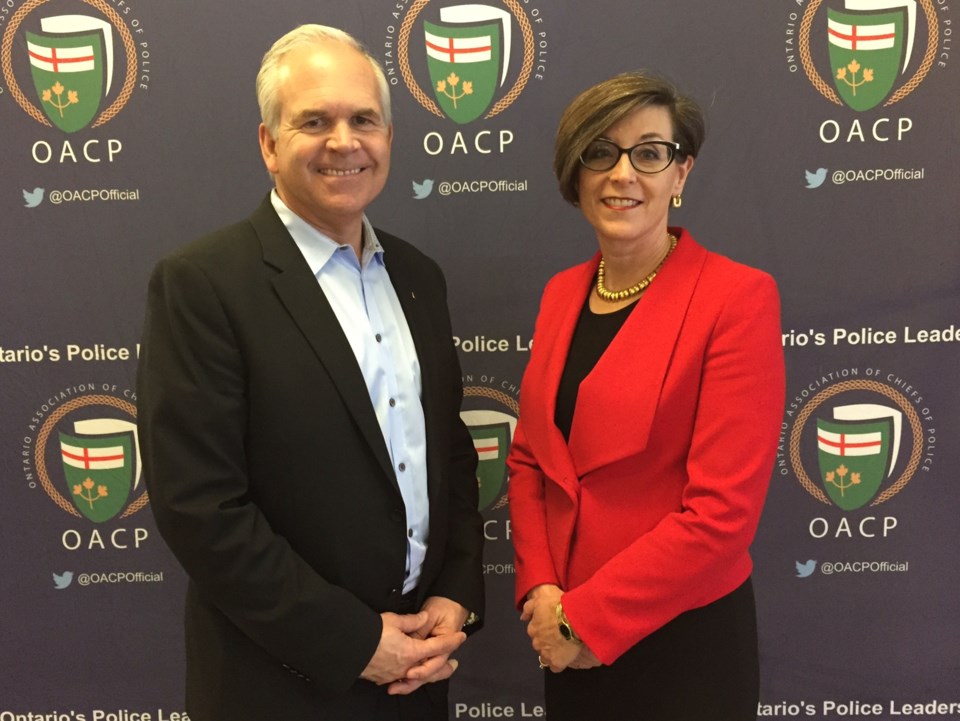The 'scourge' of fentanyl was at the top of a heavy agenda for the board of the Ontario Association of Chiefs of Police and police brass from across the province during a two-day meeting in Barrie.
"It's unacceptable that 165 people have died in Ontario this past year because of fentanyl overdoses," said O.A.C.P. President and Chief of Ottawa Police Charles Bordeleau. "It is a crisis."
Bordeleau cited a recent training session for 450 front line responders and one option on the table is to provide the opiate antidote nalaxone to officers although cost is a consideration.
Barrie Police Chief Kimberley Greenwood, host of the O.A.C.P. meeting, says Barrie police have focused on enforcement and rounding up fentanyl dealers and officers are now targeting users.
"We did have a number of overdoses over the last couple of years specifically to fentanyl and opiate. We had the very public recent one where five individuals were using fentanyl and they were rushed to our local hospital. I don't think people recognize the potency of this drug."
Public trust and confidence also topped the agenda and an issue Bordeleau believes is most effectively addressed with front line community engagement.
Body cameras are another possible tool to earn public trust and protect officers but cost is an issue there too.
"We ourselves have looked at some of the options available to us," said Greenwood. "We have to balance the needs of the community and the financial cost to implementing this type of program. But anything that can encourage trust and confidence is something we're always willing to assess and investigate."
Cyber crime and court modernization were also discussed along with the pending legalization of marijuana.
"From a public safety perspective there's a lot of questions that have yet to be answered, a lot of unknowns," said Bordeleau. "Distribution network, the impact, the age limit, where can they smoke, where can they eat, where can they consume. There's a lot of questions that we have that we're looking for answers. It is a fairly significant game changer, I think if you look at laws that have taken place certainly over the course of my career."
Police leaders are concerned about driving offences and measuring levels of intoxication.
"What is that level of intoxication and what is the impact of mixing marijuana and alcohol," Bordeleau explains. "You could be legally under the limit with alcohol and legally under the limit with drugs but the combination of both is very dangerous. So we have a lot of questions with respect to how that's going to roll out. What kind of tools and equipment and training our officers are going to need."
Another topic discussed was the use of Unmanned Aerial Vehicles as the leaders try to establish best practices.
Experts on various issues are brought in to speak to the group.
Seventeen O.A.C.P board members attended the meeting along with 25 other senior officers and leaders.



